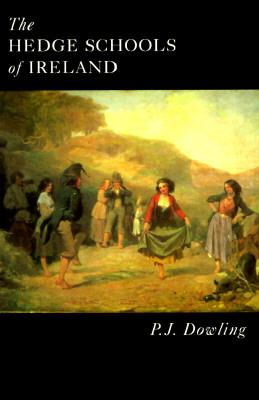Patrick John Dowling's 'Hedge Schools In Ireland' is a comprehensive chronicle of the underground education movement that emerged in 17th century Ireland, in the shadow of the oppressive 'penal laws.' These laws were directed against Irish Catholics and Ulster Presbyterians, as part of a long-standing British effort to impose their laws and customs, dating back to the failed Norman invasions of the 12th century. This book traces the resilience of the Gaelic Irish and Old English descendants who resisted Protestant conversion during the 16th-century Tudor reign and maintained their unique culture outside Dublin's Pale region.
Dowling examines the political and religious tensions of the era, from Catholic loyalties being viewed as suspect due to European Catholic kingdoms supporting Irish rebellions, to the Cromwellian reconquest leading to land seizure from native Irish and Old English Catholics, effectively placing power in the hands of a Protestant minority. These tensions culminated in William III of Orange's victory at the Battle of the Boyne in 1690, solidifying Protestant control.
The book delves into the impact of the penal laws that curtailed the rights of Catholics and Dissenters, relegating Catholic priests to fugitive status and banning Catholic schools between 1723 and 1782. Consequently, the vast majority of the Irish population was denied formal education, cementing the link between Catholicism and Irish identity.
In response, 'hedge' schools emerged clandestinely to educate those who could not afford schooling abroad. Contrary to the term's implications, most of these makeshift schools operated in private houses and barns. The book recounts how these schools evolved from hidden institutions into an acknowledged part of Irish society, with records even appearing in British censuses.
Dowling highlights the influence of 18th-century Enlightenment values, liberal Protestant planters identifying as Irish, and calls for reforms sparked by the 1798 rebellion and Daniel O'Connell's peaceful 19th-century Catholic Emancipation movement. By 1831, the National School system was established, marking the decline of hedge schools, with Catholic Church-run national schools dominating by the late 19th century. Dowling's work concludes by noting the continuing existence of hedge school forms into the late 19th century, underscoring the tenacity of Irish commitment to education.
